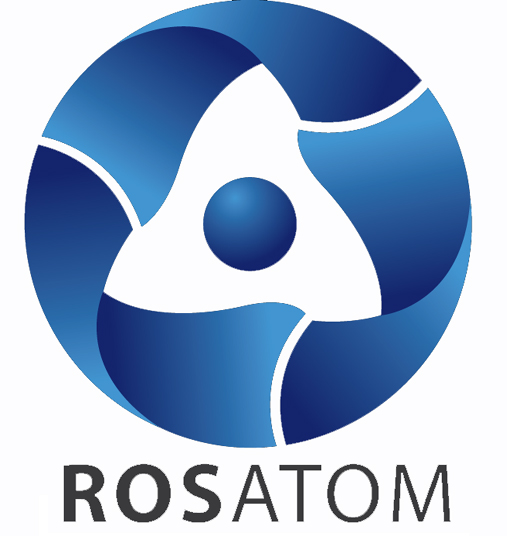Part 1 of 2 Parts
While Germany just retired its last nuclear power reactors, its next-door neighbor Poland is working on multiple nuclear power projects. Polskie Elektrownie Jądrowe (PEJ). PEJ is a special purpose “vehicle” that is owned one hundred percent by the State Treasury. It has submitted an application to Poland’s Ministry of Climate for what is called a decision-in-principle on the construction o the countries first large nuclear power plant. In the meantime, Orlen Synthos Green Energy (OSE) has just announced seven potential sites for the country’s first small modular reactors (SMRs).
The decision-in-principle will formally confirm that the investment in the plant is congruent with the public interest and the policies pursued by the state, including energy policy. The decision will also allow the investor, PEJ, to apply for further administrative decisions. These includes a siting decision and a construction permit.
A spokesperson for PEJ said that the submitted application includes descriptions of project characteristics. These include the maximum total installed capacity, the planned operating period and details of the technology to be utilized in the construction of the plant.
PEJ said that the description that was provided was “in line with government documents, including the resolution of the Council of Ministers of 2 November 2022, recognizing the need to build a nuclear power plant with a capacity of up to 3750 MWe in the area of the communes of Choczewo or Gniewino and Krokowa and based on US AP1000 reactor technology”.
They added that “An important element of the application for the decision-in-principle is the justification of the importance of the implementation of this project for securing the electricity demand in Poland. The rationale also emphasizes the compatibility of PEJ’s project with strategic government documents, including Poland’s Energy Policy until 2040 and the European Union’s climate policy.”
PEJ noted that the application was submitted on the earliest possible date. They took this action once the amended special nuclear act legislating the development and execution of the project for nuclear power facilities and associated infrastructure went into force.
Łukasz Młynarkiewicz is the acting President of PEJ. He said that “The application for the decision-in-principle filed today represents another important step by Polskie Elektrownie Jądrowe towards obtaining all the necessary administrative approvals to begin construction of Poland’s first nuclear power plant. “We are submitting it on the earliest date possible, as we are keen to significantly accelerate the pace of implementation of this key project for our country. We are also aware of the significance of this project and the importance of the further stages before us, which we will implement according to the approved schedule.”
In September of 2021, it was announced that six big, pressurized water reactors with a combined installed capacity of six to nine gigawatts could be build by 2040. This would be part of Poland’s plan to reduce its reliance on coal. According to the adopted schedule, the construction of the first nuclear power plant will begin in 2026. The first reactor will have a capacity of one to one and six tenths gigawatts. It will be commissioned in 2033. Subsequent units will be implemented every two to three years thereafter. The coastal towns of Lubiatowo and Kopalino in Poland’s Choczewo municipality in the province of Pomerania have been named as the preferred location for the country’s first big nuclear power plant.
Please read Part 2 next
Blog
-

Nuclear Reactors 1206 – Poland Is Working On Multiple Nuclear Power Projects – Part 1 of 2 Parts
-
Nuclear News Roundup Apr 17, 2023
Cameco, Energoatom fuel deal implemented world-nuclear-news.org
New member Finland to take part in NATO’s nuclear planning reuters.com
German government rejects calls to delay shutdown of final three nuclear reactors euronews.com
Navy begins long haul to inactivate second nuclear-powered carrier Nimitz breakingdefense.com
-
Nuclear News Roundup Apr 16, 2023
Hungary and Russia amend Paks II nuclear project agreement : New Nuclear world-nuclear-news.org
Russians prepare evacuation plan from Zaporizhzhia Nuclear Power Plant news.yahoo.com
In pictures: Tokamak Energy’s fusion plant concept world-nuclear-news.org
Energy Chief Slams Germany For Nuclear Shutdown europeanconservative.com
-
Nuclear News Roundup Apr 15, 2023
Hinkley Point C: Giant vessels arrive for nuclear power station build bbc.com
IAEA Assesses Kazakhstan’s Nuclear Infrastructure Progress miragenews.com
Chubarov says Russia placing nuclear weapons in Crimea would be step to nuclear war news.yahoo.com
Hungary and Russia amend Paks II nuclear project agreement world-nuclear-news.org
-

Geiger Readings for Apr 15, 2023
Ambient office = 79 nanosieverts per hour
Ambient outside = 90 nanosieverts per hour
Soil exposed to rain water = 87 nanosieverts per hour
Russet potato from Central Market = 119 nanosieverts per hour
Tap water = 87 nanosieverts per hour
Filter water = 79 nanosieverts per hour
Dover Sole from Central = 97 nanosieverts per hour
-

Nuclear Reactors 1205 – The European Union Is Trying To Eliminate Russian Nuclear Technolgy And Fuel Imports – Part 2 of 2 Parts
Part 2 of 2 Parts (Please read Part 1 first)
The controversial Belene nuclear project has roiled Bulgarian politics since it was initially proposed forty years ago. In 2012, the Belene nuclear project was formally shelved.
In spite of subsequent attempts to revive it by the then Bulgarian prime minister Boyko-Borissove, the government of Kiril Petkov, in office from 2021-2022, froze the project again due to concerns over Russian dependence. Rosen Hristov is the Interim Energy Minister of Bulgaria. He has decided to try reviving the project. He is looking for help from American and French companies.
Hungary and Slovakia have not been as consistent in their attempts to move away from reliance on Russia for their energy systems. In August of 2022, Hungary issued a Rosatom a permit to construct two new nuclear power reactors at its Paks Nuclear Power Plant.
In Slovak, a new Russian designed reactor came online in February of this year. The new reactor will be supplied with Russian nuclear fuel until 2026. The monetary value of Hungary and Slovakia’s Russian nuclear imports in 2022 grew by sixty five percent and seventy two percent respectively.
Ukrainian officials have been trying to get the member of the E.U. to put Rosatom on its sanction list for almost a year. This was especially true after Russian seizure of the Zaporizhzhia nuclear power plant.
Robert Habeck is the Germany Economic Minister. He visited Kyiv in April. He urged the E.U. to impose sanctions on the import on Russian nuclear fuel “even if that means a change for the countries that still equip nuclear power plants with Russian uranium.” He added that “This is not acceptable in any way, it should be clear to everyone that such actions are not a game of hide and seek or a minor violation”. He stressed that sanctions are being circumvented via third countries.
Kacper Szulecki is a researcher at the Norwegian Institute of International Affairs’ Climate and Energy Research Group. He told an interviewer that the dependence of the region on Russian nuclear infrastructure and fuel is multifaceted. He went on to say that “Firstly, there is an infrastructure legacy which may be a source of security threats in itself. Secondly, there are fuel imports which are not easy to handle, it takes time. Lastly, there is the area of personal contacts and potential influences that often goes quite far back and can be exploited in a political context.” He also noted that “Fuel dependency is most pressing and energy companies and states will be addressing them. However, we currently see a regional alliance with France aimed at securing a future for nuclear energy in the EU decarbonization’s plans rather than dealing with Russian security threats.” He mentioned that current efforts risk diverting attention from the threat of Russian dependence.
The debate has become a point of contention among E.U. partners. Unlike gas or oil, nuclear energy imports are very hard to replace. Regardless, European nations will have to detach themselves from Russian nuclear supplies in the long-term if they want to free their markets from all Russian assurance. -
Nuclear News Roundup Apr 14, 2023
German Anti-War Protests Demand Ceasefire in Ukraine, Nuclear Weapons Ban tasimnews.com
Dismantling Germany’s Lubmin nuclear plant, piece by piece news.yahoo.com
16% of France’s power supply blocked amid protest news.sky.com
Germany’s nuclear power plant era comes to an end energylivenews.com
-

Geiger Readings for Apr 14, 2023
Ambient office = 91 nanosieverts per hour
Ambient outside = 73 nanosieverts per hour
Soil exposed to rain water = 70 nanosieverts per hour
Red bell pepper from Central Market = 67 nanosieverts per hour
Tap water = 74 nanosieverts per hour
Filter water = 67 nanosieverts per hour


